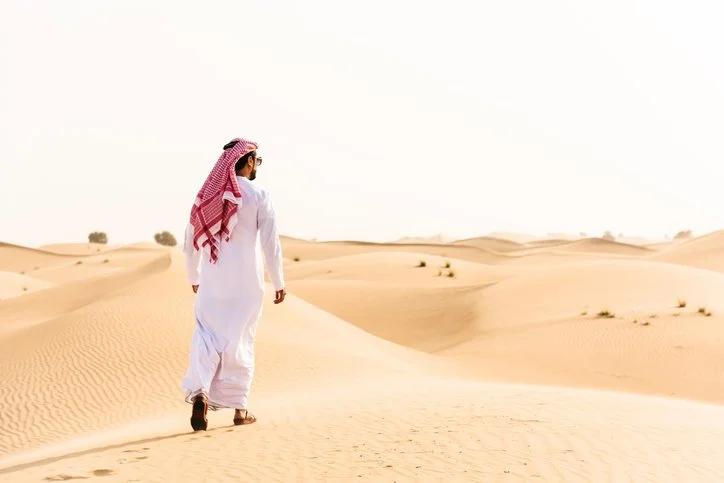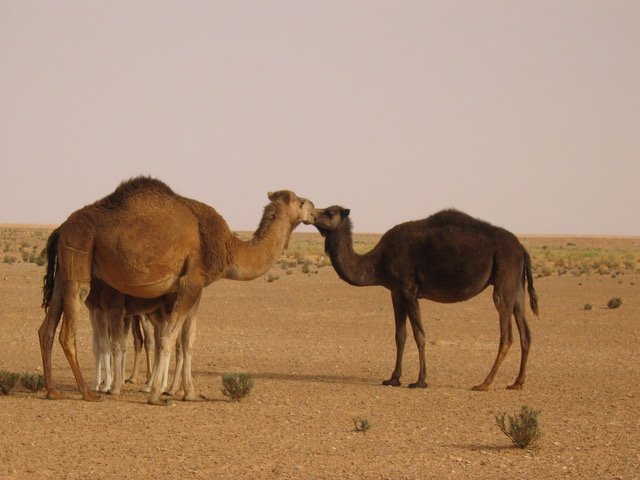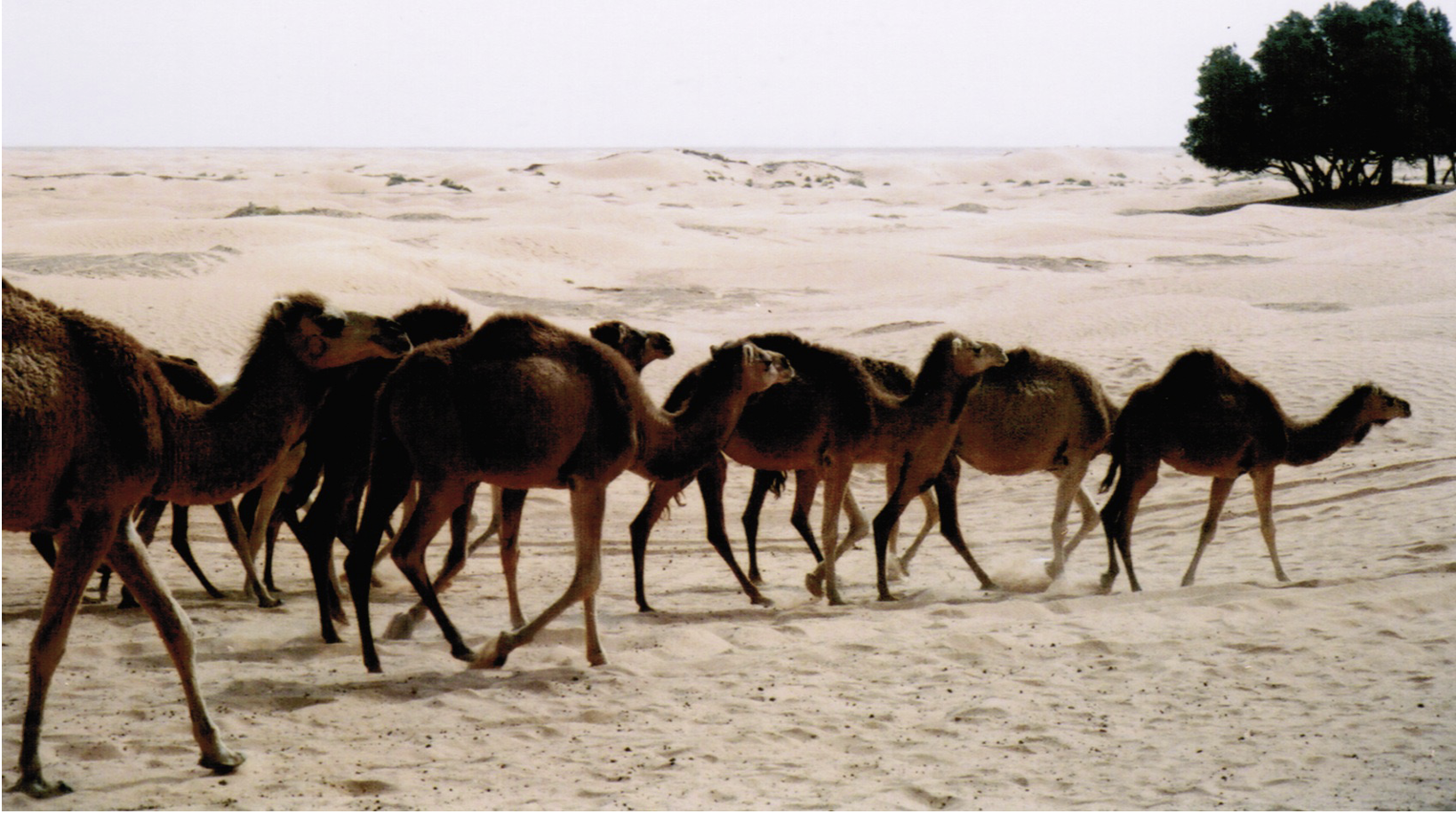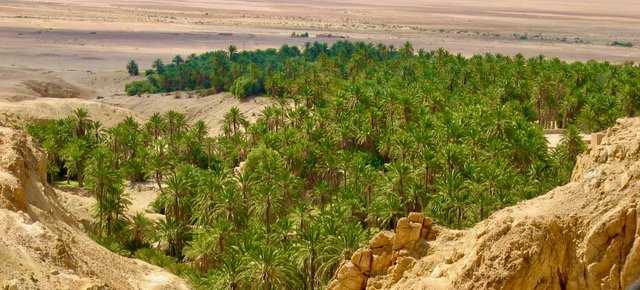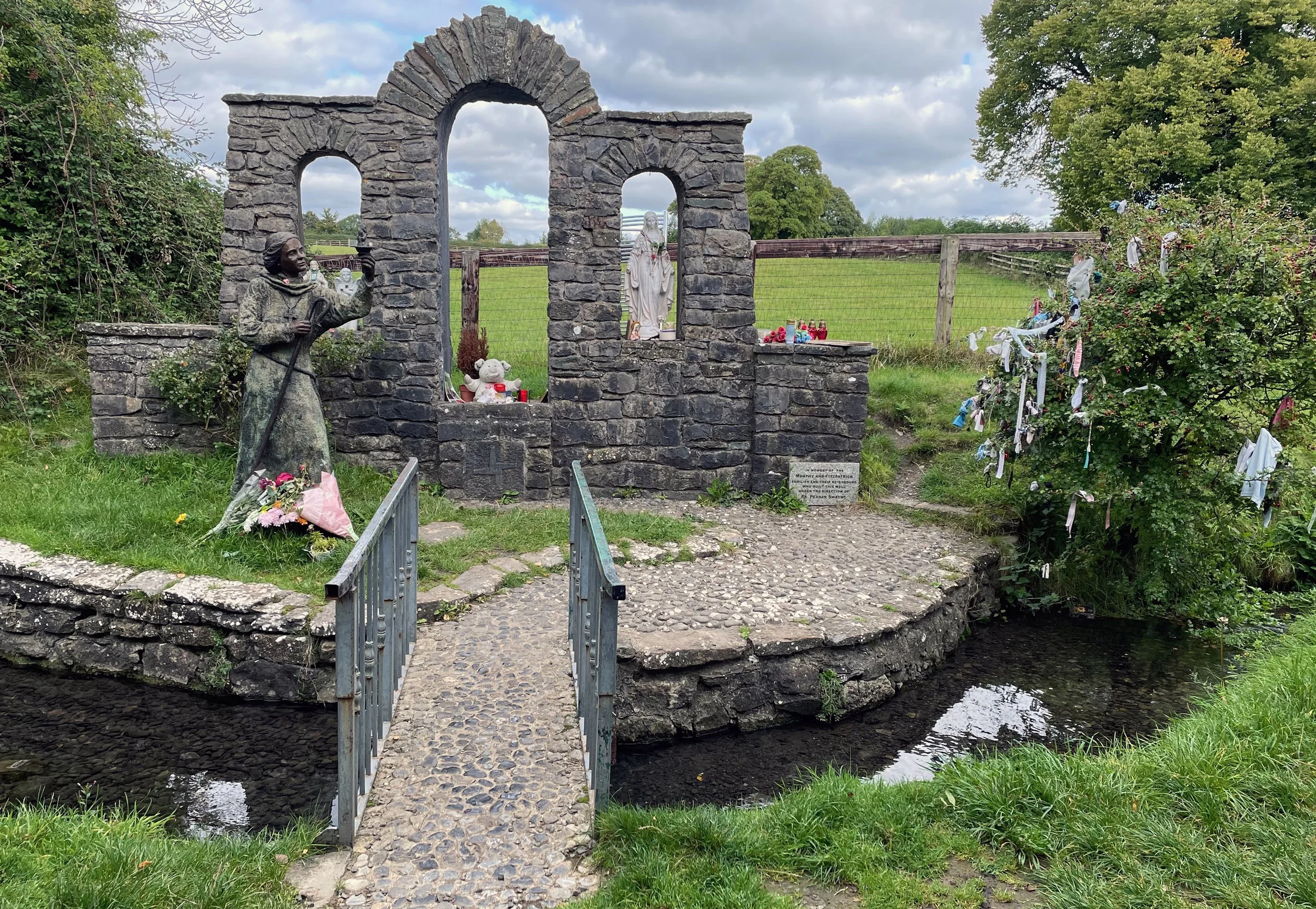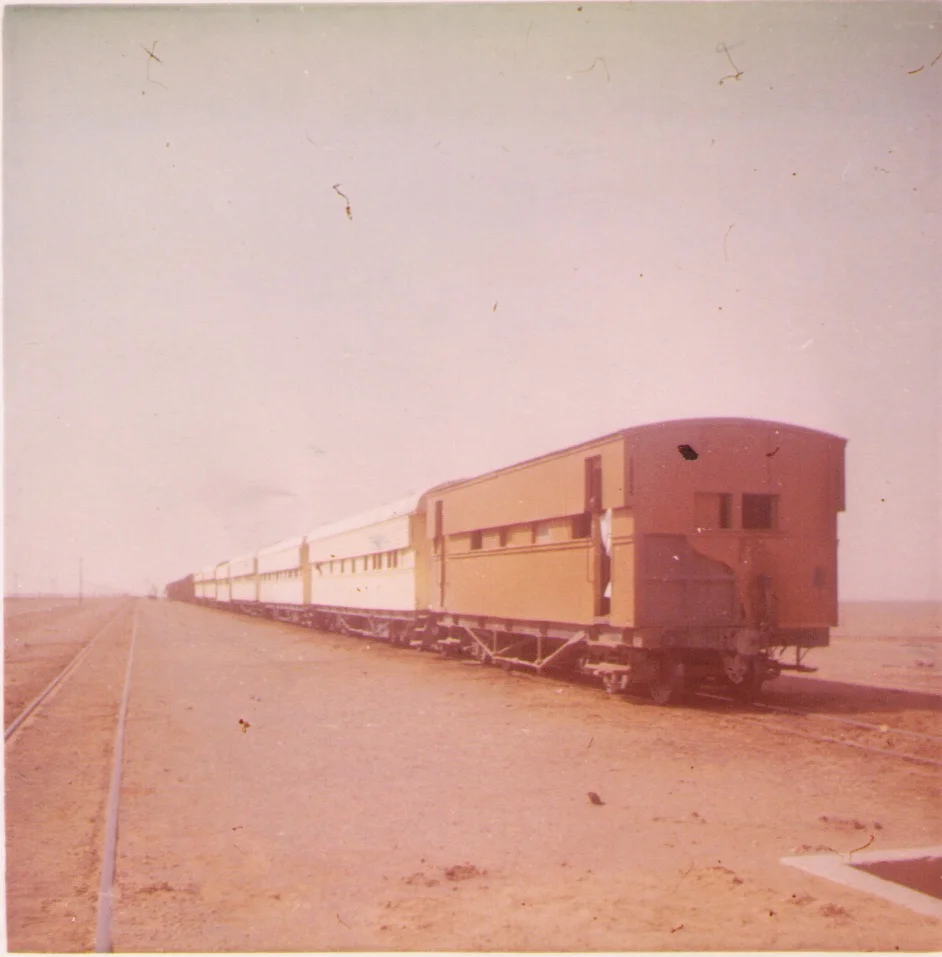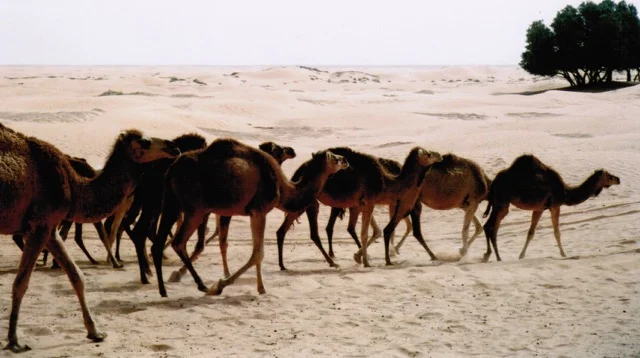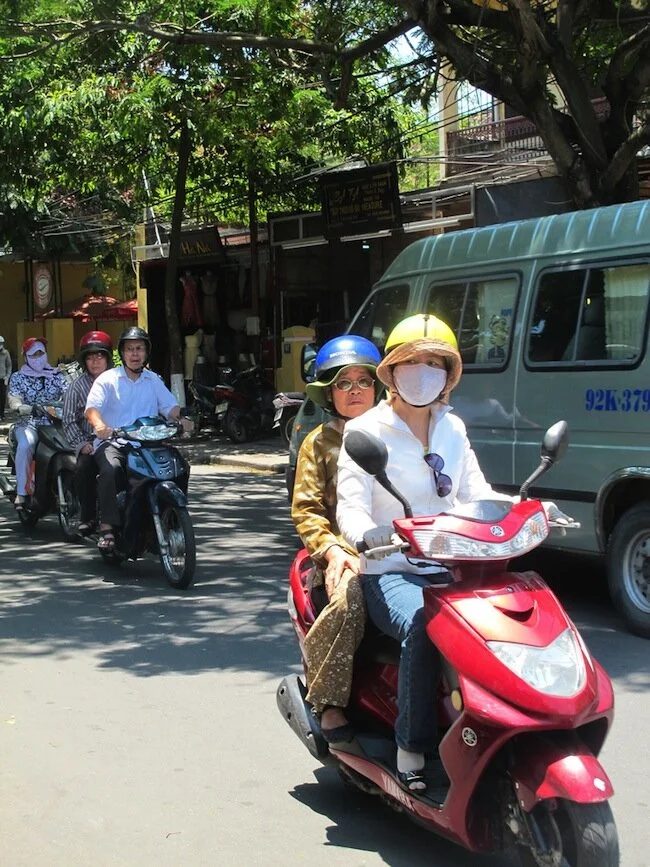Desert Therapy
By Pamela Blair
I had read of a palmerie in the west of Tunisia, where my partner and I could rent tents and sleep on the sand under thousands of palm trees. It sounded like a place we’d love.
However, when we arrived, we found hundreds of Germans had the same idea as we did, but they were there to race out onto the sand in their dune buggies. Well, we couldn’t always strike it rich, we thought.
But the following morning opened with blue skies, a fresh breeze, and endless miles of sand.
I walked up onto one of the dunes, where a young man, Mustafa, was showing his herd of camels to the German tourists, trying to talk them into a camel ride. Short, with a broad smile, and dressed in a white jellaba, his curly hair was covered in a red scarf wrapped around his head, the tail forming a cape over his shoulders. When he saw me he walked over and, in French, asked my name. Although my French was a little rusty, we started a conversation. After learning each other's names and where I was from, he asked, more directly than I’d expected,
“What do you do?”
“Une psychologue,” I replied.
“Oh, a psychologist! Well, come with me. I have something I need to talk to you about,” he said, and, forgetting his potential camel-riding customers, he grabbed my hand and led me out to a distant dune. We sat down cross-legged on the sand, the sun beating down on us, a caravan of camels sauntering with their camel driver in the distance. Solemnly, he began his story.
“When I was twelve, I fell in love with Zainab, and she, with me. We loved each other so much! We planned to get married, although we didn’t know how we would manage it, as marriages are planned by parents in our village. One day we managed to meet and vowed that, even if our parents wouldn’t allow our marriage, we would refuse to marry anyone else.”
Uh-oh. I knew I was in trouble. I had no knowledge of Bedouin cultural mores. I decided to ask as many questions as I could before giving him any advice, which I knew he wanted badly.
“But Zainab’s parents refused to let me marry her! And they haven’t let me see her since she was fifteen, five years ago.”
“Oh, that must be terrible for you,” I said. “Do you know what’s happened to her since then?”
“No! And that’s what drives me crazy!” He was close to tears by now. “I don’t know if she’s broken our vow and has married someone else or if she still dreams of me, as I do of her.”
“Do you know why her parents wouldn’t allow you to marry her?”
“I don’t know for sure, but I think it’s because they wanted her to marry one of her cousins, who is rich. But I have been working very hard with my camels, and now I am also rich.” His voice rose with pride.
“What does your family think about this?”
“My father says that he’ll support me if I run away with Zainab. I was so happy when he told me this,” Mustafa reported, a little less distraught. “But I don’t even know where she is, or if she will do it!” His face again looked sad.
“Is there anyone you know who can find this out?”
“I have a friend who might be able to see her. He also supports me and hopes that we can marry.”
“Do you know anyone else who could help you?”
“No, my friend is the only one I can think of.”
I’d run out of questions. What could I tell this poor boy? If Zainab was now twenty, it was likely she was already married, and Mustafa was holding on to an empty dream. I didn’t want to be the one who destroyed that dream, but I knew I’d probably have to, in the softest way I could think of. I was silent, not knowing what to say. Then I remembered a Broadway show I’d seen decades earlier, Kismet, a word meaning destiny. It gave me an idea.
“Do you believe in destiny?” I asked.
“Of course I do. I’m a good Muslim.”
Great! I’d found a way in.
“Then here is what I suggest. You do everything possible to find out if Zainab is still waiting for you. If she is still unmarried, find a way to ask her if she is willing to run away with you. Your friend might help with that. If she is willing, make your plan, and run away with her. As you said, your father will help with that.
I continued, fearing Mustafah would reject what I was about to say.
“But if she is not willing, or if she is already married, you must accept that Zainab is not the woman you are destined to marry.”
Then, I added something I hoped would help to persuade him.
“And, if it is truly destiny that you not marry Zainab, there is a woman somewhere out there, destined to marry you, who is waiting for you to let go of your dream to marry Zainab. You must find her, and know that you will be happier with her than you would have been with Zainab.”
Had I succeeded? I held my breath, waiting for his response.
“Oh…yes, I see…that is the advice I have needed to hear! Thank you! Thank you!”
Smiling, Mustafa rose and held out his hand to help me up from the dune. “Now I must get back to my camels! Merci beaucoup!” He shook my hand, turned and ran off.
I walked back to the campground, dazed. Had that encounter actually happened? Had I been able to give advice to a young Tunisian on a desert sand dune?
Maybe it was our destiny to meet, and to have that serendipitous therapy session.
Pamela Blair is a retired psychologist who has traveled extensively in North and East Africa, the Middle East, and South America.. She lived and worked in Tanzania in 1973-74. She has recently finished a novel regarding reproductive issues prior to Roe v Wade.
Photo credits: Pamela Blair and franckreporter
